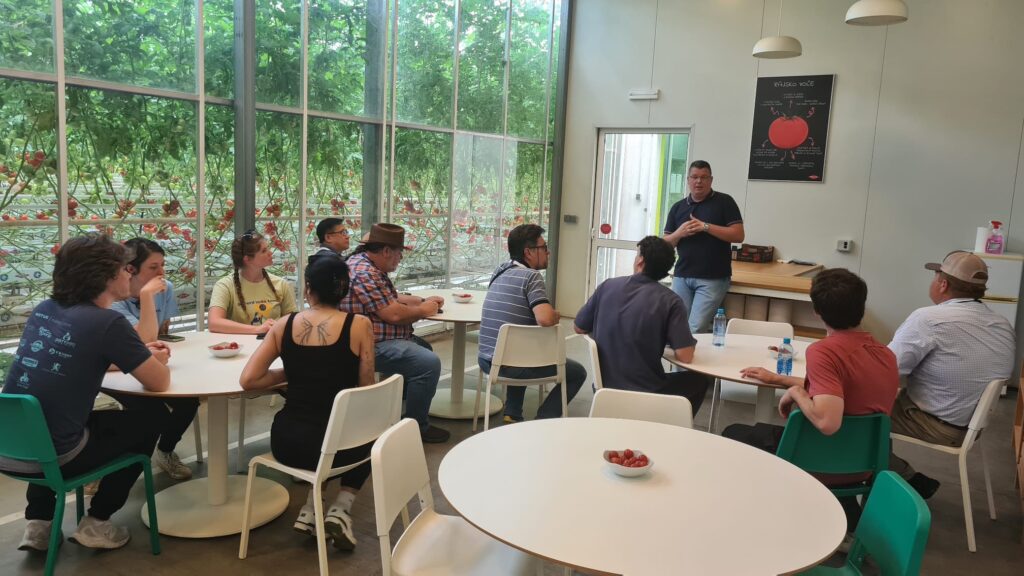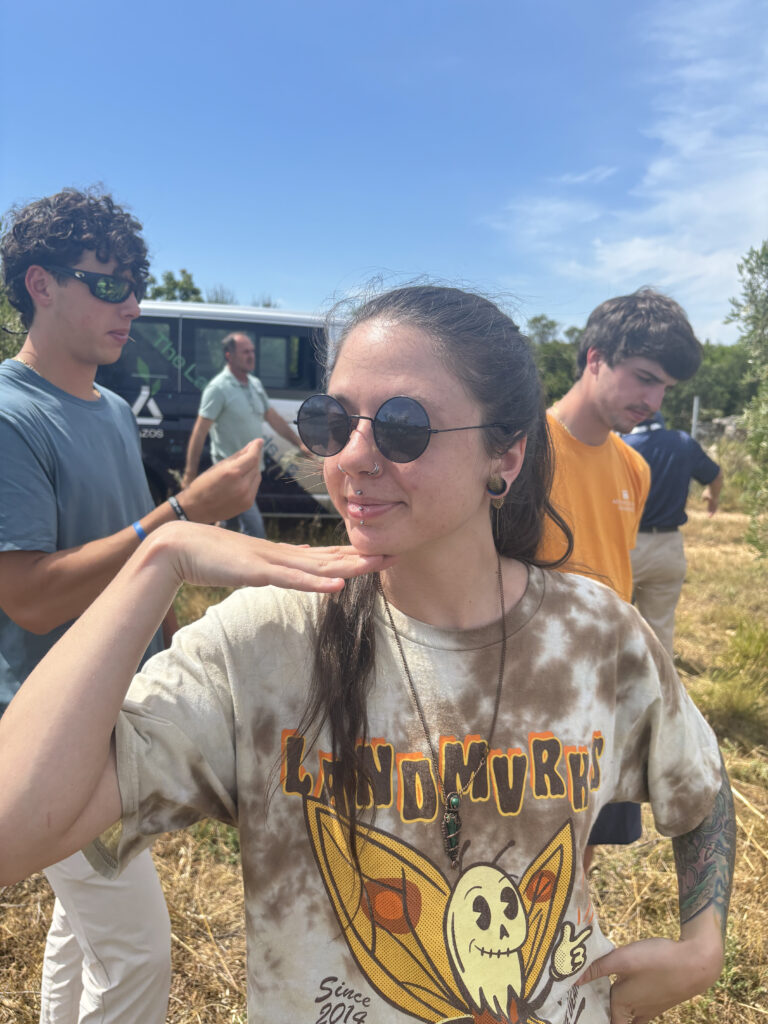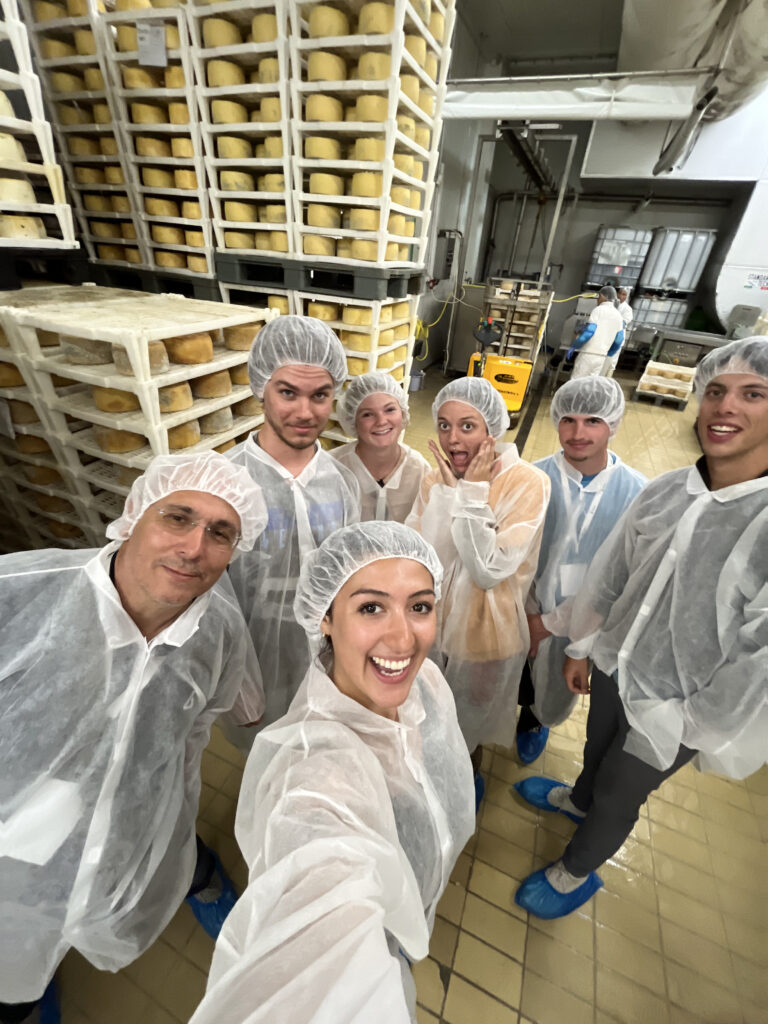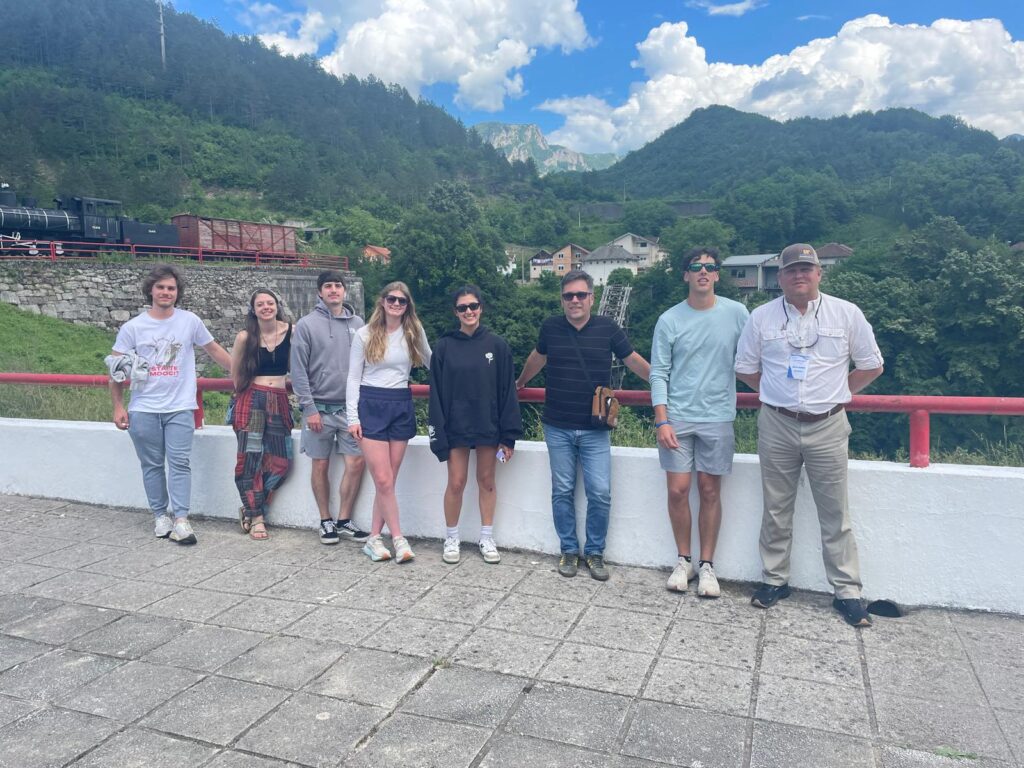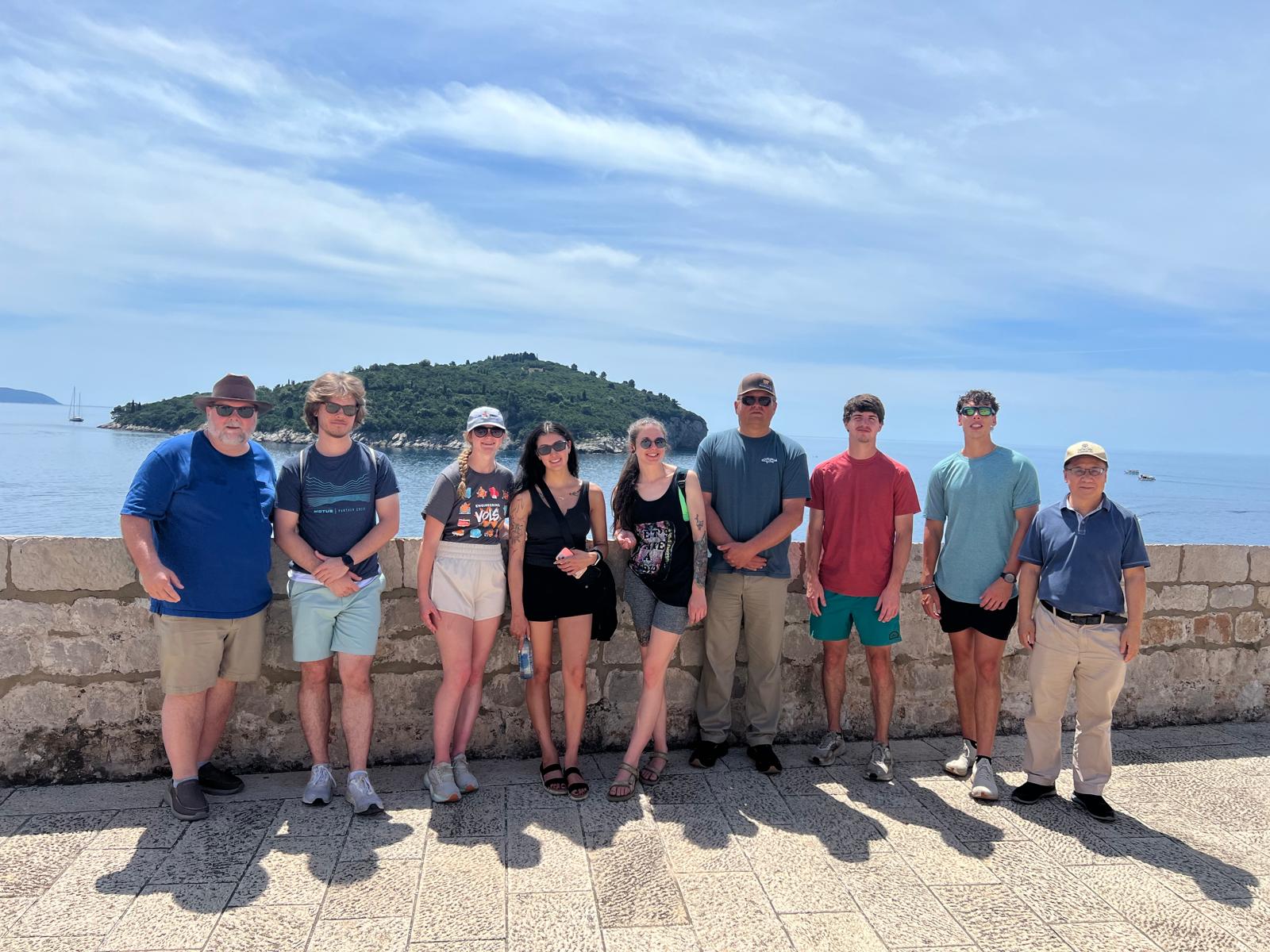
Terrilyn Klingberg and Livy Muntz reflect on their time abroad learning more about emerging technology in the agriculture industry
By Brooke Adams
From robots to artificial intelligence to cloud-based technology, the digitalization of the agriculture industry has grown drastically. Digital agriculture enhances productivity for not only farmers and ranchers, but also has the potential to help reduce input costs, minimize negative environmental impacts, and support sustainability efforts. The Digital Agriculture in Croatia study abroad program is a faculty-directed summer mini-term course and study abroad trip. This program is designed to introduce students to digital agriculture technologies and bio-economic systems in European agriculture production. As a student, you could participate in this three-week experience to learn about various emerging technologies including robotic milking in dairy cattle, greenhouse-grown produce, and more. To hear more from students who participated in Digital Agriculture in Croatia last summer, read their interviews below!
The course is led by biosystems engineering faculty, but anyone is eligible to apply and participate in this program. The priority deadline to apply is November 15th, 2024 and the final deadline to apply is February 15th, 2024. To learn more about the program, follow the link below!

Learn more below from Terrilyn Klingberg and Livy Muntz!
Terrilyn Klingberg is a second-year master’s student majoring in biosystems engineering technology. In her program, she focuses on extension research related to the broiler industry. She also examines producers’ perspectives on innovative technologies within the industry.
Livy Muntz is a junior majoring in biosystems engineering with a minor in international agriculture and natural resources. She is highly involved on campus and serves as a Herbert College of Agriculture Ambassador. She is interested in continuing her education in digital agriculture after her undergraduate graduation.
What motivated you to be a part of this program?
Terrilyn
“I was motivated to join this course because my advisor is one of the faculty who led the program. I was also the graduate research assistant for the course but mostly participated as a student. We also planned to do a wide variety of activities that piqued my interest in the program.”
Livy
“My parents have always said that their biggest regret was not studying abroad when they were in college, so I knew that I wanted to study abroad during my college career. I knew that going for a full semester would be kind of scary for me, so I started looking and stumbled across this opportunity on the Smith Center website. Once I started looking at the program, I became even more excited since it was through biosystems engineering and Croatia is a place I was interested in visiting.”
What were some of the highlights of this experience for you?
Terrilyn
“One of the highlights of the program was that all our visits were so different. During the course, we learned about pretty much any technology you can think of that is used in livestock or crop production. We saw different technologies used in agriculture production like robotic milking, anaerobic digestion, drone usage, solar panels with row crop production, and more. I also enjoyed discussing their practices and technology with the producers during our visits to their facilities. This program was a very different cultural experience than anything I have ever experienced. One thing I found surprising was that we traveled to multiple different places within Croatia, we went around the entire country. This was interesting because some parts of the country were very rural farming towns and other parts were extremely coastal. It was very fascinating to see that there are many different types of geography in just one country.”
Livy
“I enjoyed that we visited so many different places. We never stayed in one place for more than a few days, so we saw a wide variety of places within Croatia. I think the most fun spot we ended up in was Zadar. I had never heard of it before, but being able to stay in the center of the city was a unique and cool experience. Being able to swim in the Adriatic Sea was also a fun time because the water is crystal clear and really beautiful. It was an intense study abroad course because we had four hours of lectures in the morning and then went on farm visits in the afternoon. The best part about this program is that we were outside so much of the time and participated in many hands-on activities. I liked having a balance between the class and the farm visits because being in the field can be so fulfilling and educational for me as a student. Another highlight was getting to know the other students and professors even better. None of the students going knew each other before the trip, so getting to know them was so rewarding and we were able to have such a great time with each other.”
What kind of personal or professional growth did you experience?
Terrilyn
“I definitely learned more about agriculture, especially as someone who does not come from an agricultural background, but wants to pursue a career within agriculture extension. For a class assignment, we also had to give presentations in front of a room full of people, so I think that benefitted me personally because it was good preparation for extension work.”
Livy
“This was the first time I ever traveled internationally by myself, so there was a learning curve when navigating through the airports. I think I also gained valuable public speaking skills during our final class presentation in front of a group of people. Trying to balance the course while trying to immerse myself in the culture was intense, but it was so much fun. This study abroad has also made me consider a master’s program as an option after undergrad. I was hoping that the trip would help me narrow down my career path, and it helped open my eyes to the importance of agricultural engineering and the use of digital agriculture technology. It can be hard to get producers to switch from traditional methods to more innovative technology and this is so vital to help feed the world. This trip shows students how important it is for people to be on the leading edge of agriculture. ”
Why do you think it’s important for other UT students to have global experiences?
Terrilyn
“I think it helps you grow as a person because you are being immersed in a new culture. You can see and experience other cultures and learn how to interact with people from around the world. When you are stuck in one environment, it can be easy to forget that there’s a whole world of people who live very differently from you. Experiences like this program can help you connect with the rest of the world.”
Livy
“I think it is a really good way to step out of your comfort zone, especially if you have never been abroad before. It is very interesting to get a different perspective on how they do things in another country. I learned so many things while abroad both related to my education and not. It can be so beneficial to have more of a growth mindset and be open to opportunities like these, especially as a student.”
What would be your advice for a student who’s never gone abroad?
Terrilyn
“Be comfortable with the unknown and don’t be afraid to try new things just because they may sound intimidating or scary.”
Livy
“I would tell them to sign up for it and look into studying abroad. With the Croatia program, you are with the professors the entire time, and every part of the program is planned out. So, if you have never traveled abroad, it is a lot less scary than it may seem. I would encourage anyone and everyone to take advantage of these opportunities.”
To schedule a study abroad advising appointment, reach out to the Herbert study abroad coordinator, Kyra Barrier at kbarrie4@utk.edu.
For more information about study abroad scholarships: https://smithcenter.tennessee.edu/study-abroad-scholarships/











